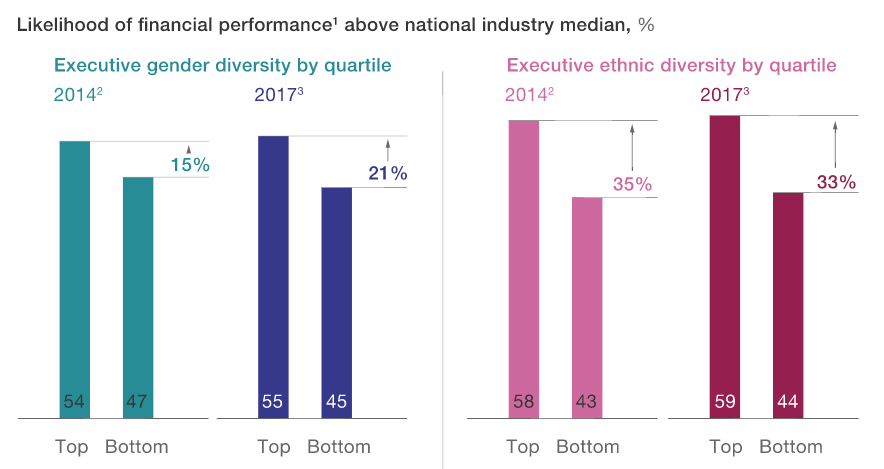
1. Hire analytics translators → Keep data scientists happy
An emerging role – what some call the Analytics Translator – is offloading burden from data scientists, while helping business executives get better value from their technology investments. A recent HBR piece explains You Don’t Have to Be a Data Scientist to Fill This Must-Have Analytics Role. These STEM-savvy “light quants” draw on “domain knowledge to help business leaders identify and prioritize their business problems…. Translators then tap into their working knowledge of AI and analytics to convey these business goals to the data professionals who create the models and solutions. Finally, translators ensure that the solution produces insights that the business can interpret and execute on.” Benefits include higher job satisfaction and retention for hard-to-find data scientists.
[Ed. note – We’ve compiled the best articles and white papers on Analytics Translators and similar roles.] It’s a rigorous interpretation of the data storytelling idea, requiring much more than Tableau or D3 to create beautiful data visualizations (though that can be part of it). The role requires domain or functional knowledge, and access to proprietary information by internal teams or trusted advisors. Henke et al. note that “many companies have created their own translator academies…. At McKinsey, we’ve even created an academy in our own firm, training 1,000 translators in the past year.”
2. Algorithms alone → Human resistance
What is the right balance between algorithms and human choice? Will people eventually trust driverless cars in autonomous mode? Will business executives rely on algorithms that guide strategic decisions? Previously we wrote about insurance underwriters and how they interact with algorithms to set pricing policies.
Behavioral scientist Jason Collins explains key considerations for Dealing with Algorithm Aversion. An early example is the Mercury space rocket, which triggered a battle for decision-making authority: Man vs. automated decision aid. In What to Do When Algorithms Rule, he describes how test pilots wanted to function as, well, pilots – with control over things like thrusters, re-entry.
People react similarly in other settings: We often disregard the answers provided by machines. As in the insurance underwriter case, experiments demonstrate that we’re more likely to use an algorithmic answer when we can adjust it, rather than being forced to simply accept the machine’s recommendation. Interestingly, “when the algorithm was the default and [people] were asked what they would require to shift to their own judgment, they were substantially more likely to use the algorithm and performed better on the task.” When human answers were the default setting, people were more reluctant to accept the algorithm. Thanks to @koenfucious.
3. Diversity → Profitability.
McKinsey reports that “gender and ethnic diversity are clearly correlated with profitability, but women and minorities remain underrepresented.”


4. “Hard” (a/k/a soft) skills → Better decision-making.
MIT Sloan experts share experiences with the benefits of critical thinking and collaboration, including these words to live by: “Defining a problem is the most underrated skill in management.”
Quick insights.
All of us appreciate a good explanation of a complex technical topic. Kudos to William Koehrsen for his discussion of Markov Chain Monte Carlo for Python.
And… even American Heart guidelines are wrong about fish oil supplements. More evidence shows Omega-3 supplements don’t prevent heart disease.
Posted by Tracy Allison Altman on
Photo Credit: Mace Ojala on Flickr








